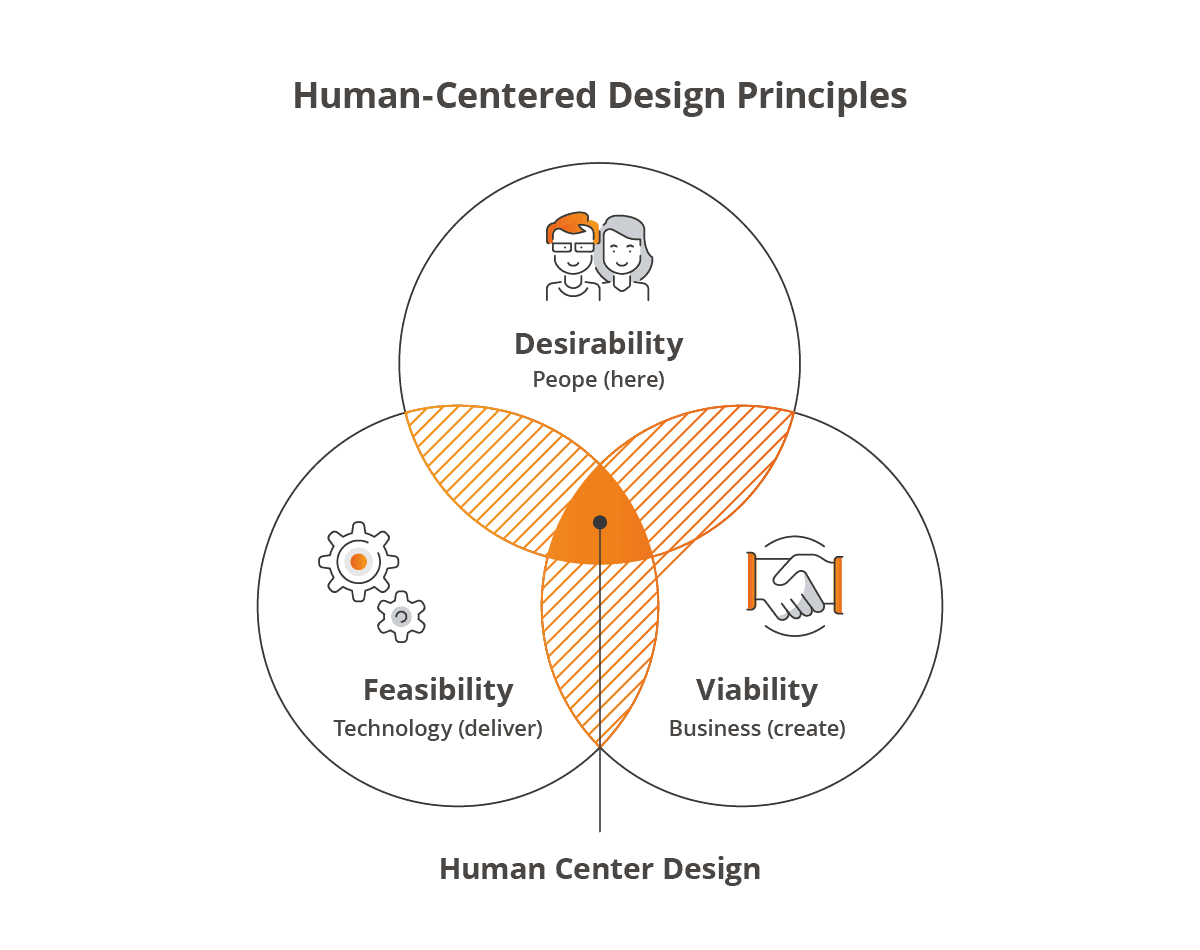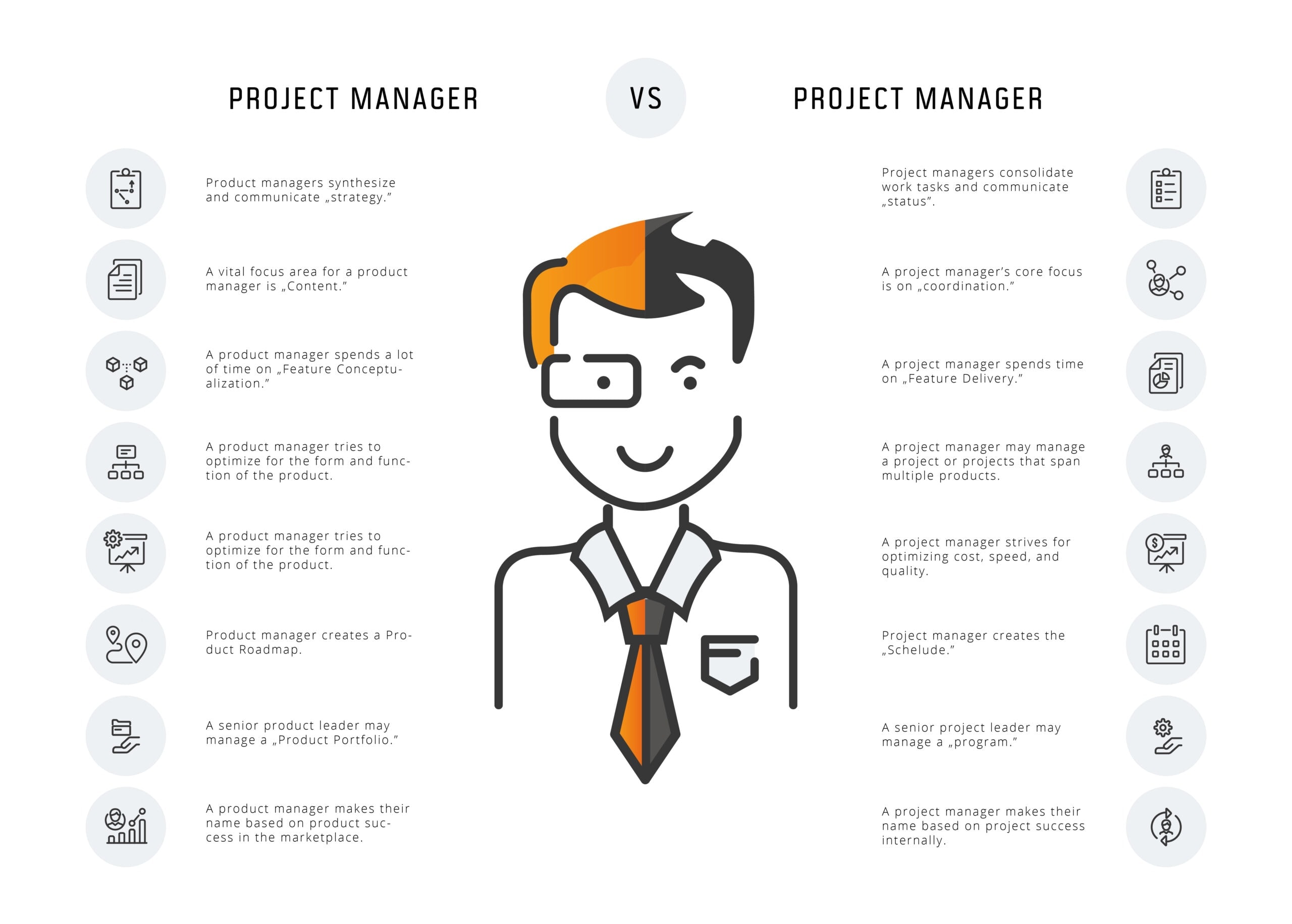
What’s the difference between a Product Manager vs Project Manager?
Project management is one of the most important aspects of business. Being able to deliver projects on schedule, on budget, and conforming to business goals are vitally important for any company to remain competitive in the modern global business environment.
And one of the most effective ways of doing it is having a great Project Manager and a fantastic Product Manager to work with. Today we explore the differences between the two and see how they can work together to achieve excellence.
Defining the roles: Product Manager vs Project Manager
Let’s start with considering the roles of Product Manager vs Project Manager. Are these roles the same?
Both Product Managers and Project Managers must possess great leadership skills and demonstrate a high level of confidence to lead their teams to success. They also need fantastic time management skills to be able to put together a timeline for the project, understand the dependencies of that timeline and they both need to work with a project team.
As we can see from these similarities, Product Managers and Project Managers are basically the same thing, right? Wrong.
For many, the differences between product management and project management are still unclear. While there are overlaps in the skills and responsibilities associated with each of the roles, there are also some significant differences between them.
Responsibilities of Product Managers vs Project Managers
In short:
Product Manager is focused on the what and the why: “What are we building?” and “why are we building it?”.
Project Manager is focused on the how and the when: “How can we get a project accomplished?” and “when are we to complete it?”.
Still not clear?
Project has time, scope and budget, while the product doesn’t have to. A project management professional may be responsible for delivering MVP of a product. Once the agreed scope is delivered, it may mean the end of engagement for a Project Manager and a very beginning of a journey of a Product Manager.
A Product Manager is responsible for the actual product (be it physical or digital) that a business is creating. They understand the whole product and are responsible for developing the overall strategic plan. Product Manager creates the roadmap for the product and must maintain it throughout its life cycle, even after it is released.
A Product Manager’s job is the continuous development of the product. They are constantly adding features, developing the roadmap for product, and working on enhancements to their product. Product Manager’s role is essentially the same as being a mini CEO – the role is highly strategic. They must understand the customer needs and their customer base.
A Project Manager, on the other hand, is a very tactile role. They must understand and control the overall execution of a project, including the operations and commercial engagement. Project Managers are concerned with achieving their goal of getting a usable product to their customers within a specified timeline.
Project Managers have a fixed start and end to their projects; their role is not ongoing in the same way that product development is. Project Managers break a project down into separate initiatives. They allocate project resources and communicate the project’s progress to its stakeholders.
Being a Project Manager is a much more concrete role than being a Product Manager as it is a one-time initiative with the overall goal of “get it done”.
The unique skill sets of Product vs Project Managers
To understand the differences between the two, let’s now look at the unique skill sets of both Product and Project Managers.
Essential Product Manager skills should include:
a strategic mindset to define the product vision and long-term strategy,
strong market research skills to understand customer needs, market trends, and competitive landscapes,
capability to oversee the entire product lifecycle,
strong collaboration skills, as they work with various teams, including development, marketing, sales, and customer support,
ability to understand user experience (UX) and user interface (UI) design principles.
Project Manager’s skills include:
planning skills and the ability to execute projects within a specified timeframe and budget,
risk management skills,
ability to effectively allocate resources,
great communication skills,
ability to adapt to changes and uncertainties.

The core differences between Product Management and Project Management
The comparison of product management vs project management is important for any business, as it’s essential that companies understand how each role would function in reality within their daily operations. It’s all well and good understanding the basics, but how does a Product Manager and a Project Manager fit into the day-to-day running of a modern company?
Product Managers spend much of their time understanding the business needs of their products. Product management is an externally facing role which involves regular interaction with customers. On a day-to-day basis, this means that Product Managers are in marketing research for their products, always striving to understand the market and their customers’ needs better and create a product that meets their sales metrics.
Read more about product development:
In comparison, project management generally involves working within internal teams in the business. Project Manager focuses on getting the project implemented within a set timeframe and rolling out the product to their customers. Project Manager work with development team to break down, implement tasks, manage the project’s resources, lead meetings to coordinate their teams, and track strategy KPIs that contribute to business objectives.
Two key aspects for any company are marketing and production. But how does development compare with marketing? What is the difference between marketing and production? Responsibility for the development of a product ultimately falls to the Product Manager.
They understand the whole product from top to bottom. In order to create the product, Product Manager must research carefully, set the product vision, and communicate it to the stakeholders and develop a strategic plan. Project may be a fraction of a product or it may be the other way around – a project may be an initiative which affects multiple products.
Marketing and production overlap at times, but they are distinctly different. Marketing may involve promoting a product to potential customers and gathering data from them regarding their needs and satisfaction levels. Development is concerned with the practical development of a product, which is driven by the marketing data.
This is where the Product Managers and Project Managers must collaborate together as each will drive the other.

How Product and Project Managers complement each other?
Product and Project Managers complement each other through a collaborative and synergistic relationship. Their collaboration enhances the overall efficiency and effectiveness of product development processes.
While Product Managers set the product vision, define goals, and communicate the overall strategy to the team, Project Managers translate the Product Manager’s vision into actionable tasks and milestones. The communication between them is crucial.
Product Managers keep the team aligned with the product strategy, while Project Managers ensure that everyone understands their roles and responsibilities within the project plan. This collaboration fosters cross-functional teamwork, as both managers work together to achieve the common goal of delivering successful products.
The complementary roles of Product and Project Managers create a well-rounded approach to product development and leads to the successful delivery of products that align with both market demands and organisational goals.
Industry insights: understanding the demand for Product and Project Managers
For the last few years the demand for a Product and Project Manager continues to be robust across various industries. These professionals play pivotal roles in steering businesses through project execution, product development, and strategic initiatives.
Because of that, the demand for Project and Product Managers is expected to persist and evolve as industries undergo digital transformation and businesses continue to prioritise effective project management and product development strategies.
What’s more, both roles are a great and interesting career path!
Choosing your path in the dynamic fields of Product and Project Management
Being a Product Manager and a Project Manager are two completely different things. And you may be wondering which one would suit you best. To answer that question you need to consider a number of factors.
It’s important to think of what makes you happy in a job: are you someone who enjoys variety in and thrives on meeting strict deadlines? Or are you someone who loves delving into every single nook and cranny to create the best possible product?
Being a Product Manager involves a high level of strategic thinking and management. It is highly tactile and requires you to be hugely detail-oriented.
Are you someone who enjoys examining every aspect of a product?
Do you thrive on continuously developing a product, problem solving its issues, and focusing long term on one single product?
If the answer to those questions is yes, perhaps being a Product Manager is the best position for you.
You may also be the type of person who needs variety. You might prefer to ride the wave of an intense, fixed timeline in which, come hell or high water, the project must be completed.
Do you thrive on tight deadlines?
Do you actually work better under extreme stress and impossible conditions?
Are you simply someone who gets the job done and can always deliver on their promises?
If yes is your answer, Project Manager’s job is for you. Whichever path you choose, the chances are you’ll always work closely together with the person doing the other job.
A company without a Product Manager lacks vision and will struggle to find clear direction.
A company without a Project Manager will lack the ability to deliver their product on time and coordination between departments will suffer heavily.
At the end of the day, both Product Managers and Project Managers are crucial members of any successful company. The only question is, which are you?



